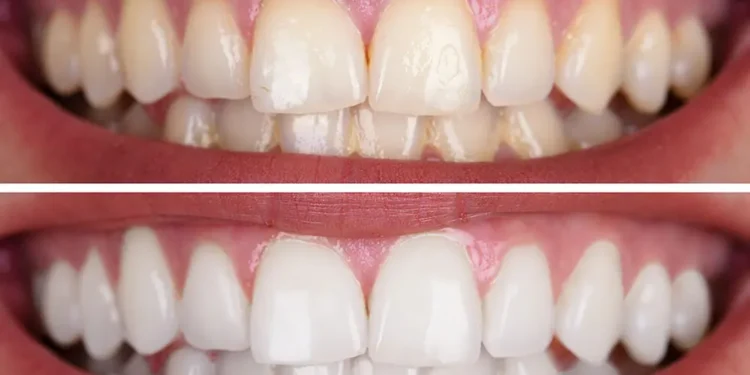Do teeth whitening toothpastes work? Teeth whitening has become a famous trend in the quest for a brighter, more confident smile. Many individuals turn to whitening toothpastes as a convenient and accessible solution. This article will explore how they work and what you should consider before incorporating them into your oral care routine.
Do Teeth Whitening Toothpastes Work?
One of the primary purposes of whitening toothpastes is to target and eliminate surface stains on teeth caused by common culprits like coffee, soda, or smoking. If your teeth are affected by these everyday stains, you can expect noticeable improvements by using quality whitening toothpaste consistently. However, it’s crucial to note that whitening toothpastes cannot change the natural color of your teeth.
Immediate Appearance of Whitening
When it comes to whitening toothpaste, patience is key. The visible effects may not be immediate for all types of toothpaste. However, if you desire an instant enhancement in the appearance of your teeth, look for products containing a magical ingredient known as “blue covarine.” This chemical works as an optical illusion by reducing the yellowish appearance on the tooth’s surface, resulting in an immediately perceptible whitening effect. Keep in mind that this effect may not be as long-lasting as other whitening methods and is best complemented with additional whitening approaches.
Long-Term Whitening Results
For long-term whitening results, whitening toothpastes should be used regularly, ideally at least twice a day. The transformation may not be visible after the initial use, so patience and persistence are essential. These toothpastes achieve lasting results through a combination of abrasive agents that polish the teeth and chemicals that break down stains.
Ingredients in Whitening Toothpastes
Common abrasive ingredients found in whitening toothpastes include:
- Hydrated Aluminum Oxide
- Calcium Carbonate
- Magnesium Carbonate
In addition to abrasives, some whitening toothpastes contain bleaching agents such as carbamide or hydrogen peroxide. These ingredients play a crucial role in whitening teeth. Carbamide peroxide acts faster, but both substances ultimately achieve a similar degree of color change over approximately two weeks of regular use.
Important Product Considerations
Seeking Safe and Effective Products
As you embark on your journey to find the perfect whitening toothpaste, prioritize safety and effectiveness. Look for the American Dental Association (ADA) Seal of Acceptance on the product packaging. This seal indicates that the product has undergone a rigorous evaluation, demonstrating its safety and efficacy. While participation in the ADA Seal program is voluntary, it serves as a testament to the manufacturer’s commitment to quality and reliability.
Potential Risks
While whitening toothpastes are generally considered safe, they are not without potential risks. The most common issues associated with these products include mild irritation of the gums and mouth, as well as increased tooth sensitivity. It’s important to be aware that whitening toothpastes rely on abrasive agents to deliver results. These abrasives can effectively remove surface stains but may also wear away some tooth enamel. As the enamel diminishes, more dentin underneath may become visible, often causing discoloration.
Case Study: Arm & Hammer Advanced Whitening
To illustrate the potential risks, let’s examine a case study. In clinical trials of Arm & Hammer Advanced Whitening toothpaste, it was found to whiten teeth for 39% of users. However, 25 percent of users experienced darker teeth as a result of using the product. This stark contrast highlights the importance of understanding the potential outcomes of whitening toothpastes.
Conclusion: Do Teeth Whitening Toothpastes Work?
In conclusion, whitening toothpastes can be effective in removing surface stains and increasing the appearance of your teeth, especially when dealing with common staining agents like coffee and soda. However, setting realistic expectations is essential, as these toothpastes cannot alter your natural tooth color. Patience is key when using whitening toothpastes, and it’s advisable to look for products with the ADA Seal of Acceptance for safety and efficacy assurance.
While whitening toothpastes offers convenience, it’s vital to be aware of potential risks, such as enamel erosion and variable outcomes. Ultimately, the decision to use whitening toothpaste should be made with a thorough understanding of the product and its limitations. So, do teeth whitening toothpastes work? Yes, they do, but success depends on the nature of your tooth discoloration and your commitment to regular use.




